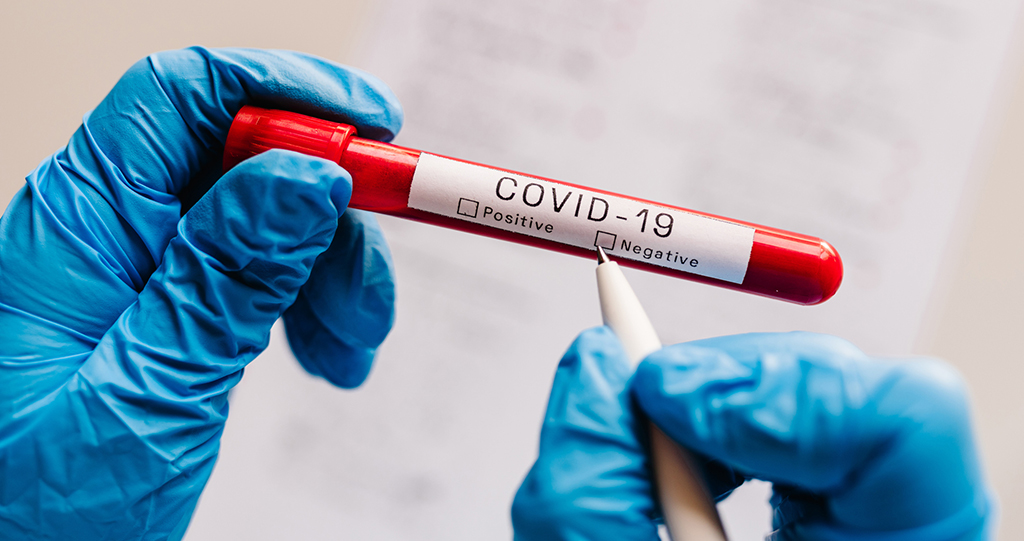HR Law Update: Arbitrator Upholds Covid-19 On-Site Testing Policy
Throughout the pandemic, employers have faced considerable legal uncertainty in the implementation of Covid-19-related safety measures. Unanswered and unprecedented questions have littered the landscape, with employers often facing daunting issues in the implementation of protective measures in their workplaces.
Happily, a recent arbitration case out of Ontario has provided some guidance on the circumstances in which a Covid-19 testing policy may be upheld: EllisDon Construction Ltd. / EllisDon Corporation and Verdi Structures Inc. v. Labourers’ International Union of North America, Local 183. The decision in this case was issued on June 10, 2021, by arbitrator Robert Kitchen.
In this case, arbitrator Kitchen dealt with a grievance challenging a Covid-19 rapid on-site testing policy (the Policy) implemented by an employer, EllisDon Construction Ltd. (EllisDon). Local 183 of the Labourers’ International Union (the Union), challenged the Policy as unreasonably invasive and the test as unreliable, among other things.
The Policy
The Policy required workers at particular sites to be tested twice per week. The tests were only administered on individuals who had already passed through other screening measures such as a questionnaire and temperature check. If a worker tested positive, they were denied access to the site. They were then required to undergo a lab based test to confirm the result. These lab tests were done at a public testing site. Workers were allowed to refuse on-site testing, although such a refusal would result in a denial of access to the site.
In addition to the Policy, EllisDon had already implemented a number of other Covid-19 safety measures including extensive pre-attendance screening, mandatory masking, physical distancing and enhanced site cleaning.
The Union’s Grievance

Cameron Wardell will be speaking at the Upside of People, HR Conference & Expo on Sept. 27-28, 2021.
Given that rapid testing involves the collection of a body sample (a nostril swab), the Union argued that testing was inherently invasive and violated critical employee interests such as the right to privacy and bodily integrity. The Union argued that the other measures in place were sufficiently effective without being nearly as intrusive.
Weighing the above critical interests against the problem the Policy was intended to address– coupled with the availability of less intrusive means to address it–the Union argued that the Policy was not a reasonably proportionate response.
The Union argued that, as a unilaterally imposed policy, the Policy had to (and didn’t) meet the criteria set out in Lumber & Sawmill Workers’ Union v. KVP Co. (1965), 16 L.A.C. 73 (Ont. Arb.) [KVP], including that it be reasonable, clear and disseminated to affected workers. The Union relied on other case law emphasizing that, in applying the KVP test, arbitrators must be mindful of whether or not the policy strikes a reasonable balance between employer and employee interests and must also consider the nature of the interests at stake, whether there are less intrusive means available to achieve the objective, and the impact of the particular policy on employees.
The Union led evidence of recent scientific studies which suggested that aerosols, not droplets, were the primary mode of Covid-19 transmission. Therefore, given that EllisDon’s worksite was “open air”, the risk of Covid-19 was drastically reduced. To support this view, the Union pointed out that the small number of positive tests at the worksite were all detected off site.
Finally, the Union also compared the Policy to universal random testing for drugs and alcohol and argued that the Policy should be struck down given the rigors required of such testing and the Supreme Court of Canada’s decision in Irving Pulp & Paper Ltd. v. CEP, Local 30 2013 SCC 34.
The Decision
Arbitrator Kitchen explained that an employer attempting to justify a policy needed to provide “objective evidence […] of a real problem that will be addressed by a specific solution.” He went on to note that the risk of Covid-19 transmission generally should not be accepted as justification for a policy absent compelling evidence that it is a specific problem in the context of the workplace in question.
However, in the result, and considering the risks to the workforce, other individuals and members of the public in the context of the pandemic restrictions in place in Ontario, arbitrator Kitchen found the Policy to be reasonable using a “balancing of interests” approach. Arbitrator Kitchen noted that EllisDon’s interest in promoting health and reducing the spread of Covid-19 in their workforce and the community at large “far outweighs the interests of the employees in this case.” He also noted that the nature of the movement of employees between worksites was of particular concern for Covid-19 transmission in the construction industry.
Arbitrator Kitchen explained that while scientific evidence seemed to suggest that an “open air” environment reduces the spread of Covid-19, it could not eliminate the risk. As arbitrator Kitchen put it, the risk of “Covid-19 spread is not hypothetical or speculative.”
Arbitrator Kitchen also pointed to the significant efforts made by EllisDon in the rapid testing program to protect the privacy and dignity of the workers. The test used by EllisDon was minimally invasive compared to other possible tests. EllisDon also decided to administer the test via throat and nostril swab, which minimizes discomfort compared to a nasopharyngeal swab. On the privacy front, arbitrator Kitchen drew attention to the procedures EllisDon had in place to protect employee privacy. These included:
- Individuals being tested are physical distanced from others during the testing (aside from the healthcare professional administering the test);
- Swabbing is conducted in a manner such that it cannot be observed by anyone other than the healthcare professional administering the test;
- Testing results are read and recorded by healthcare professionals such that they cannot be observed by anyone other than the healthcare professional administering the test;
- Healthcare professionals sanitize before and after each test, and deep cleaning of the test site is conducted at regular intervals throughout the day; and
- All bio hazardous waste from the test site is disposed of through a registered hazardous waste removal process.
In upholding the Policy as reasonable, arbitrator Kitchen also considered (and emphasized) that:
- Members of several other trade unions had been tested without complaint;
- Due to the nature of construction work and the number of workers on-site, social distancing was not always possible;
- Construction employees regularly move between job sites, which increases the risk of transmission; and
- The testing was conducted in a hygienic and private manner.
Finally, arbitrator Kitchen rejected the Union’s comparison of the Policy to drug and alcohol testing policies, relying on Caressant Care Nursing and Retirement Homes, (2020) in which a similar comparison had been argued, quoting:
… clearly controlling COVID infection is not the same as monitoring the workplace for intoxicants and I so find. They are different in kind. Intoxicants are not infectious. COVID testing reveals only one piece of information: the employee’s COVID status. Being intoxicated is culpable conduct; testing positive is not.
The Conclusion
Arbitrator Kitchen’s decision may be an important one for employers to consider in the implementation of Covid-19 testing at worksites. In this context, employers will want to consider both the developing science (such as the nature of the virus as an aerosol) as well as the ongoing societal situation (such as the nature of government-imposed restrictions and lockdowns in place). The nature and location of the employer’s workforce will also be important, as well as the availability of less intrusive measures or tests. Nevertheless, employers may find legal support for the implementation of testing in their workplaces to address the risk of Covid-19 transmission.
Cameron Wardell and Eric Kroshus are lawyers at Mathews, Dinsdale and Clark LLP, Canada’s only national labour and employment law firm. During law school Cameron did an exchange term at Oxford and Eric spent some of his undergrad at Harvard where he also played NCAA hockey. Since Cameron is older and a partner he gets to tout his experience as more valuable.
For the latest HR and business articles, check out our main page.
Reader Feedback
We want to hear from you!
Do you have a story idea you’d like to see covered by PeopleTalk?
Or maybe you’ve got a question we could ask our members in our People & Perspectives section?
Or maybe you just want to tell us how much you liked the article.
The door is always open.










